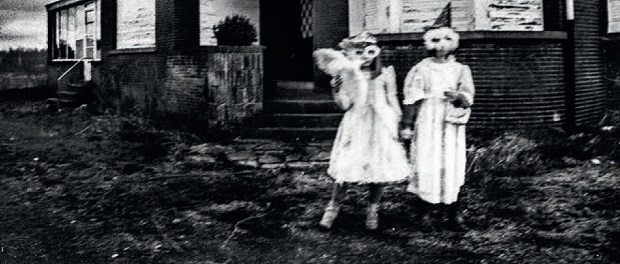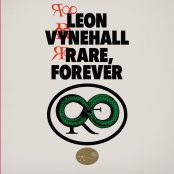[dropcap style=”font-size:100px; color:#992211;”]S[/dropcap]ome records have the good fortune to be released at appropriate moments.
By chance or design, they can symbolise or document something of the zeitgeist. In the case of darker genres it could even be said that to be released in a time of bad fortune can be (mis-fortunately) fortunate. The times of terror, war and collapse that dark ambient and martial music have ambivalently and even lovingly conjured over recent decades have now materialised. These are genuinely and increasingly tragic and disastrous times and the need for sounds of consolation and representations of recent and imminent tragedy should be clear, especially in a Belgian context.
The fact that there is little information about those behind this project and that the titles are in Flemish will leave listeners mainly reliant on the sounds themselves to interpret this album. We are told that the work (described on the act’s website as ‘party of purgatory’) is inspired by Edn White Chandler’s Recollections of 1861-1865 (1921) and the cover features a haunting black and white photo of two children in fancy dress outside a derelict mid-century house. It also claims to be inspired by the mediaeval and early modern past, although there is little explicit trace of this in the music.
‘Hoort De Engelen Wenen’ shimmers into view like a haze that slowly but relentlessly obscures the sun, setting the scene for what takes place after the departure of the light. ‘De Admiraal Heeft Geschoten’ is accompanied by a surreal black and white video which might hint at some obscure Belgian in-joke. The track features abyssal bass over which graceful, slow-moving chords circle many fathoms above. In the final section a ghostly female voice haunts the fading soudscape.
On ‘De Tand Des Tijds’ the atmosphere recalls the work haunting work of The Caretaker.
Scratchy string samples and light gramophone music fade very subtly into slowly grinding drones. The result seems like a sonic equivalent of the infinitely slow movement of geological “deep time”. There’s a sense of colossal, tectonic forces working on a vast scale. The subdued drones of the skeletal ‘De Zon Schijnt Toch Ook Voor U?’ create one of the most haunting pieces of the album.
Things turn (relatively) sweeter on ‘Gedane Zaken Nemen Geen Keer’. An initially dark tidal flow becomes a battle between anthemic and chaotic tendencies. This is followed by the arrival of more mournful chords and a theremin-like sound that makes it verge on being a little kitsch, though still charming.
The penultimate ‘Op De Laatste Rij, Daar Zwijgt Ge Niet’ is both subdued and ominous. Atomised piano tones are picked out against the noise of a distant apocalyptic wind, suggesting an unrealisable simulation of earthly radio signals on their endless journey through deep space.
A natural ending to a work of this type would be a more beatific and ethereal piece, but ‘Ten Halve Gekeerd, Ten Hele Gedwaald’, though initially more serene and verging on saccharine, suddenly becomes darker, with the ominous sound of police sirens dragging the listener away from deep sonic space to everyday tragic reality. This conclusion symbolises this subtly powerful album’s constant tension between light and dark, melancholy and tragedy.
Appearing in the spring of 2016 it’s sadly timely and certainly a fitting lament for its times, and for the passing of time.
Daghraven
#1
SOUL0072: Consouling Sounds

From Speak and Spell to Laibach.




















